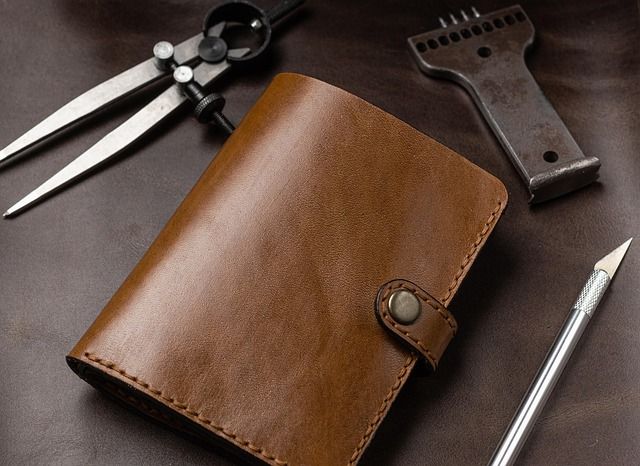5 Things You Should Buy Handmade
- Category: Pics |
- 28 Aug, 2025 |
- Views: 6178 |

In a world full of mass production and overnight shipping, it's easy to forget the charm and value of buying handmade. But the things crafted slowly and intentionally often carry more meaning, better quality, and longer lifespans.
Whether you’re looking for something personal, beautiful, or built to last, handmade items are hard to replicate.
Buy These 5 Things Handmade
The challenge lies in knowing which items benefit most from being handmade versus those where factory production might actually be preferable. Some things truly shine when crafted by skilled hands, while others function perfectly well coming off an assembly line.
With this in mind, here are five categories where choosing handmade almost always delivers better results.
Pottery and Ceramics
Mass-produced dishes and mugs might fill your cabinets, but handmade pottery brings something entirely different to the picture. Every handmade ceramic piece carries subtle variations in thickness, glaze patterns, and form that make it unique.
Functionally, handmade pottery often performs better than factory-made alternatives. Skilled potters understand clay in ways that machines never can. A handmade coffee mug might keep your morning brew warm longer than a thin-walled factory version, while handmade serving bowls sometimes have better balance and weight distribution.
The glazing process on handmade ceramics also tends to be more durable and food-safe. Many artisan potters use high-quality glazes and firing techniques that create stronger, more chip-resistant surfaces. While you might pay more upfront, these pieces often last decades rather than years.
Leather Goods
Few things demonstrate the superiority of handmade craftsmanship quite like leather goods. A handmade leather wallet, belt, or bag represents hundreds of years of traditional techniques refined by artisans who understand how leather behaves, ages, and develops character over time.
Consider how much abuse your wallet endures daily – constant folding, pressure from sitting, exposure to moisture and heat, friction against other items in your purse or pocket. A handmade leather wallet is built to withstand this beating while actually improving with age. Skilled leather workers select higher-grade hides, use stronger stitching techniques, and finish edges in ways that prevent cracking and wear.
The difference becomes apparent within months of use. While mass-produced wallets often begin showing wear, cracking at stress points, or losing their shape, handmade leather wallets develop a rich patina and become more supple and comfortable to use.
Soaps and Skincare Products
Your skin is your body's largest organ, and what you put on it matters more than many people realize. Handmade soaps and skincare products offer purity and customization that commercial alternatives rarely match. Small-batch producers can control every ingredient, often using higher-quality oils, butters, and essential oils than large manufacturers who prioritize shelf stability and cost reduction over skin benefits.
Handmade soap makers typically use traditional cold-process or hot-process methods that preserve the natural glycerin content, creating bars that moisturize rather than strip your skin. Commercial soap manufacturers often remove glycerin to sell separately, leaving you with harsh cleansers that require additional moisturizers to counteract their drying effects.
The ingredient lists on handmade skincare products tend to be shorter and more pronounceable too. Instead of mysterious chemicals with fifteen-syllable names, you'll find ingredients like olive oil, shea butter, lavender essential oil, and oatmeal. This transparency allows you to avoid specific ingredients that might irritate your skin while supporting products made with genuinely nourishing components.
Artisan soap makers can also create custom formulations for specific skin needs. Whether you're dealing with sensitivity, dryness, or preferences for scent and texture, small producers can often accommodate requests that large companies would never consider economically viable.
Jewelry
Handmade pieces of jewelry carry something that factory-made accessories never can: soul. When an artisan creates jewelry by hand, they're making intentional choices about every curve, texture, and detail that will make the piece uniquely beautiful.
The quality difference between handmade and mass-produced jewelry is often immediately apparent. Handmade pieces typically use better materials, stronger construction techniques, and more durable finishes. While costume jewelry might tarnish or break within months, well-crafted handmade pieces can last lifetimes and often become family heirlooms.
Handmade jewelry also offers the opportunity for customization that mass production can't match. Artisan jewelers can adjust sizes, modify designs, incorporate meaningful stones or metals, and create completely custom pieces that reflect your personal style or commemorate important moments.
Candles
The difference between a handmade candle and a mass-produced one becomes apparent the moment you light it. Artisan candle makers typically use higher-quality waxes like soy, beeswax, or coconut wax that burn cleaner, longer, and more evenly than the paraffin wax commonly used in commercial candles.
Hand-poured candles also allow for better scent distribution and intensity control. Small-batch candle makers can use higher concentrations of fragrance oils and essential oils, creating more complex, nuanced scents that fill rooms without being overwhelming. They can also blend custom scent combinations that mass producers would never consider economically viable.
The burn quality of handmade candles typically exceeds commercial alternatives significantly. Proper wick selection, centered placement, and optimal wax-to-fragrance ratios mean these candles burn more evenly, last longer, and produce less soot.
Beyond functionality, handmade candles often come in unique containers that can be repurposed long after the candle burns down. Artisan makers frequently use vintage vessels, hand-thrown pottery, or interesting glassware that becomes part of your home decor, even when the candle is gone.
Making the Right Purchases
Not every handmade item is automatically superior to mass-produced alternatives, so learning to identify quality craftsmanship becomes important. Look for makers who can explain their processes, use quality materials, and stand behind their work with appropriate guarantees or care instructions.

